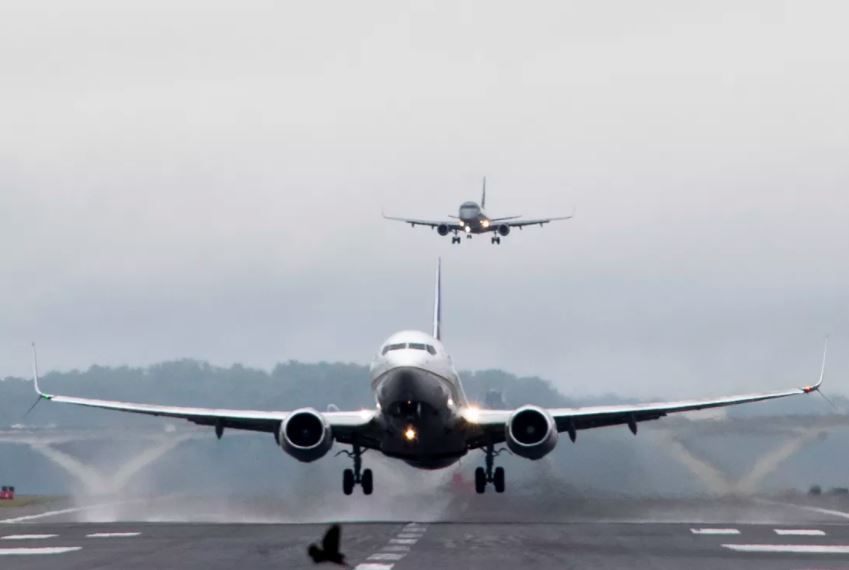The CEOs of US airlines and freight carriers cautioned that the new 5G wireless technology, which is slated to launch this week, may cause significant disruptions in travel and shipping unless it is delayed within a two-mile radius of airport runways.
According to the letter sent to Biden administration officials on Monday, the executives asked US officials to “take whatever action necessary to ensure that 5G is deployed except when towers are too close to airport runways until the FAA can determine how that can be safely accomplished without catastrophic disruption.”
The executives warned that problems with planes’ instruments might cause “vast swathes” of the US fleet to be grounded, resulting in the cancellation, diversion, or delay of over 1,100 flights and 100,000 passengers. Accordingly, they requested US officials postpone the service’s deployment within two miles of the airport runways in question.
In a letter to White House National Economic Council Director Brian Deese, Transportation Secretary Pete Buttigieg, FAA Administrator Steve Dickson, and Federal Communications Commission Chairwoman Jessica Rosenworcel, they wrote, “Immediate intervention is needed to avoid significant operational disruption to air passengers, shippers, supply chain, and delivery of needed medical supplies.”
The radio airwaves, which the carriers paid $70 billion for last year, are intended to provide quicker and wider-ranging communications, improve the relatively short range of higher-speed millimeter-wave 5G and give better connections than 4G LTE-like low-band 5G. On the other hand, the aviation sector claimed that the radio waves could interfere with aircraft instruments.
Following pressure from the Federal Aviation Administration, airline businesses, and Buttigieg, Verizon and AT&T agreed to a two-week delay in introducing their enhanced 5G networks. The delay was sought because of concerns that these 5G communications, which use the C-band spectrum rather than other airways already in use for 5G services, could interfere with radio altimeters, which use similar signals to determine how high an airplane is above the ground at any given time.
In November, carriers suggested safety precautions to guarantee cell towers don’t interfere with aviation signals, including decreasing tower power levels nationally and even stringent limits near airports and helipads. In addition, the carriers proposed constructing specific exclusion zones around airports where C-Band 5G will not be deployed for six months before agreeing to the postponement.
The letter comes after the FAA announced on Sunday that it had approved low-visibility landings at airports where the new 5G service would be installed for an estimated 45 percent of the US commercial jet fleet.
A Verizon spokesman did not immediately respond to a request for comment, while an AT&T spokesperson declined to comment.


